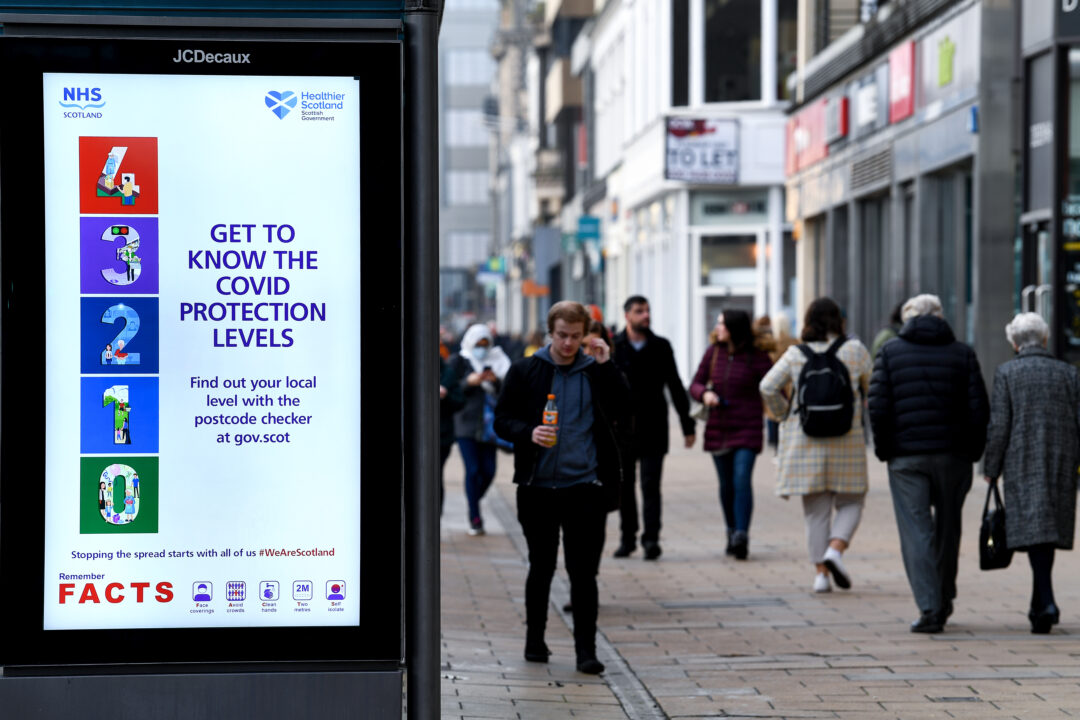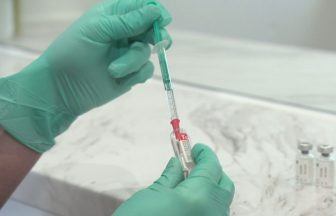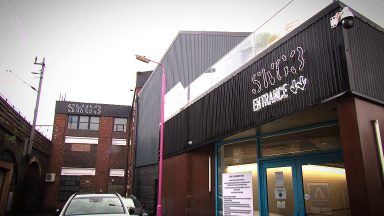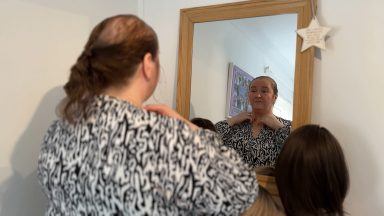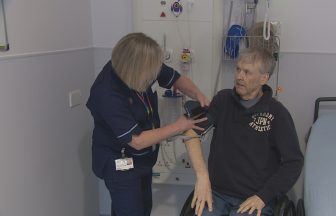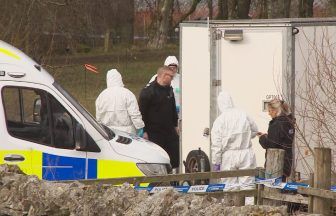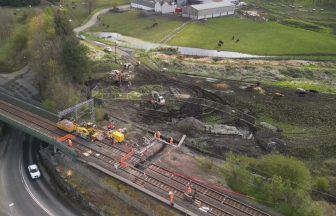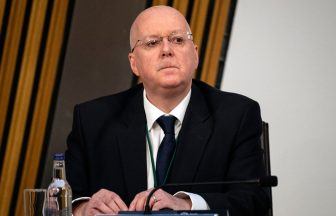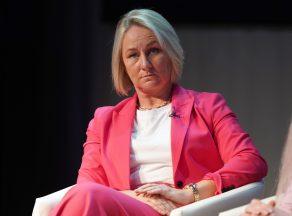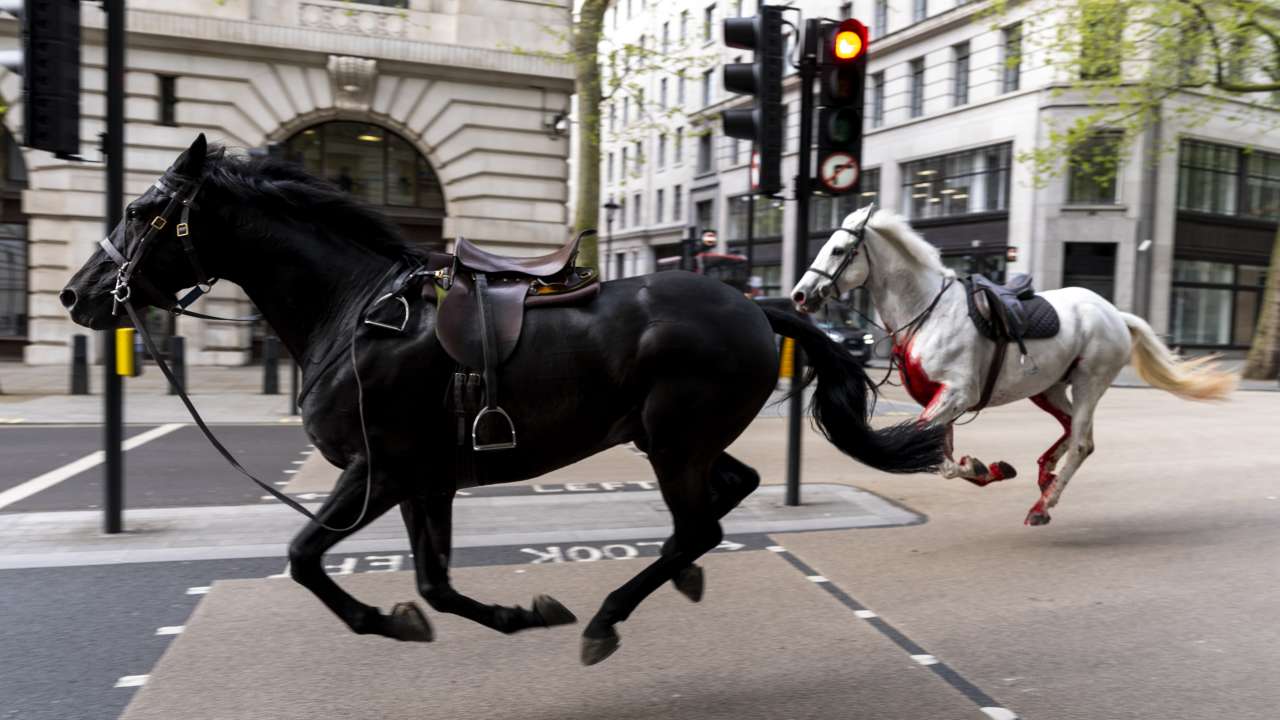People “shouldn’t panic” despite a period of record Covid infections, national clinical director Jason Leitch said on Tuesday.
The country has seen a steep rise in new coronavirus cases in recent weeks but Tuesday’s number was the lowest for 11 days, giving optimism that the latest wave of Covid may be starting to come under control.
Speaking to STV News, Leitch said the country “may be over the peak” after witnessing a spike in infections that he partly attributed to football fans watching European Championship matches and travelling to London for Scotland’s clash with England.
He said: “We should be cautious and we should be thoughtful but we shouldn’t panic. We’ve now had four days of stable cases – remember hospitalisation data of course lags the case data – so we were expecting more hospitalisations this week because of the case rate in the previous ten days or so but we’ve now had four days of less than 3000 cases; it’s still too high but we may be over that peak, I really hope we are, and the next few days’ data will tell us.
“We’re closely watching the hospitalisation data in Raigmore (Hospital in Inverness) and elsewhere. Hospitals are managing but that may have to be at the expense, of course, of people who are waiting on waiting lists for elective surgery – we don’t want to have to cancel or postpone because we’ve had to do that throughout the pandemic.
“But we’re hopeful. Intensive care is relatively stable and we aren’t seeing high numbers of deaths, so this does feel different and vaccination is working.
“If you look at the north of England they have very similar rates to us. England is big and its case rate is diluted because of relatively low levels and relatively high levels.”
Leitch said Scotland also has lower natural immunity to Covid-19 because the country has experienced lower rates of the virus during the “bulk of the pandemic”.
He was speaking as Scotland recorded six deaths of coronavirus patients in the past 24 hours and 2363 new cases.
The death toll under this daily measure – of people who first tested positive for the virus within the previous 28 days – is now 7735.
The daily test positivity rate on Tuesday was 10.2%, down from 12.6% the previous day.
Leitch said: “It (immunity to the virus) was significant enough to give us some more numbers (in Scotland) and remember the history of waves in a pandemic are not told in ten days, they’re told over months, so you have to watch what happens in Spain, for instance, today where their numbers have soared. Portugal, where their numbers have soared. But other parts of Europe, where their numbers appear stable.
“So you can’t judge over a short period, you have to look over a longer period. If you look at the top ten local authorities on the UK dashboard, five are Scottish, five are English, so it depends how you cut the data but Scotland’s numbers are too high and everything we do has to be to get that case rate down, get the hospitalisations down and save people’s lives.”
Under the Scottish Government’s current plan, all of Scotland is expected to move to level zero on July 19, allowing slightly more freedoms including groups of up to eight people in homes and ten in pubs and restaurants, although from just four households.
But on that same day, all laws on mask-wearing and social distancing in England are likely to be scrapped entirely, Prime Minister Boris Johnson said on Monday.
First Minister Nicola Sturgeon has previously announced that the next easing of “major” legal limits here is expected to happen on August 9.
As the country prepares to open up even more in the coming weeks, parts of the health service say they are now feeling the strain caused by the high number of infections over the past month
Leitch said, however, that the three-week delay behind the lifting of legal restrictions in England would allow more people to be vaccinated with a second dose before measures are significantly relaxed.
He said: “The Joint Committee on Vaccination (and Immunisation), who look at our pandemic, the UK pandemic, and they make decisions and choices about our present position, they say the sweet spot for vaccinating, for coverage and for safety and for protection, is eight weeks between the doses and that’s what we’re doing. If they change that advice we’ll change our programme.”
“I think the population in Scotland has been very, very good during this pandemic, as it has been across the whole of the UK. We will try and communicate with every fibre of our being – the First Minister and the rest of us – to try and get across why we need to be cautious. One of the things I would tell you is that a three-week gap allows three weeks more second doses. If we’re vaccinating 10-15,000 people a day with second does, ten days is 100,000 injections, 20 days is 200,000 injections and we’re hoping those numbers will rise, of course, as we get more people to come for their vaccines.
“So it’s not a huge delay, the present plan is parliament next week will hear what is to happen on July 19, when it is recalled, the First Minister will receive advice over the weekend, and then a more major opening, all being well, if the data allows, the First Minister will get advice, in time for August 9.”
Follow STV News on WhatsApp
Scan the QR code on your mobile device for all the latest news from around the country


